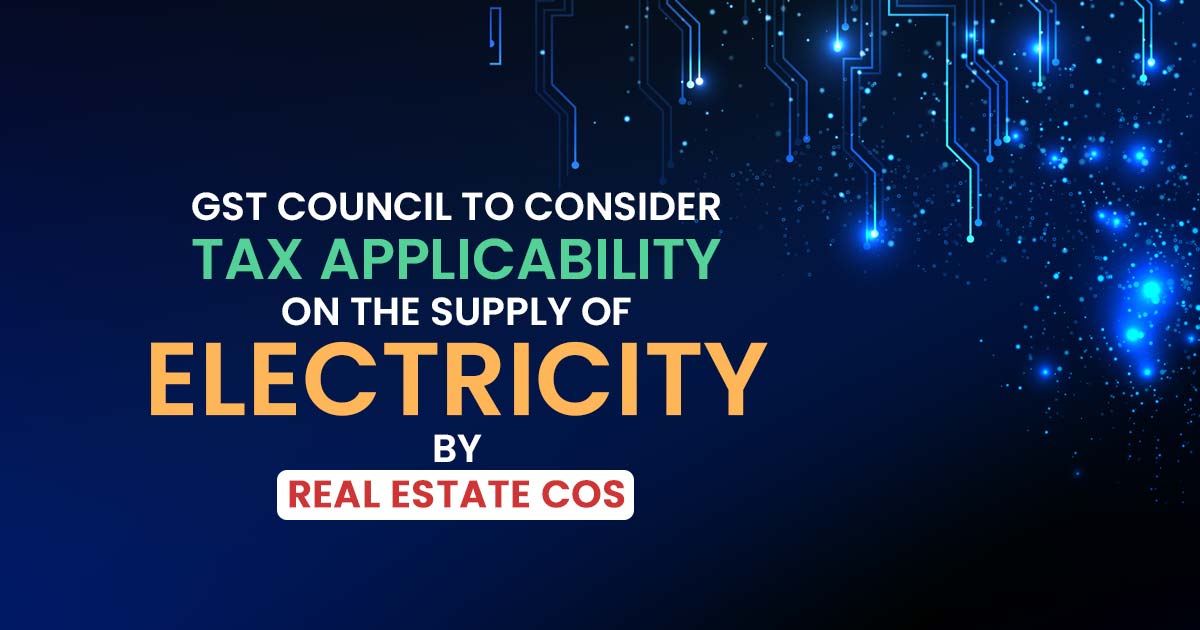
During its upcoming meeting on October 7, the GST Council is expected to provide clarity regarding the exemption from Goods and Services Tax (GST) for the supply of electricity by real estate companies, malls, and airport operators to their lessees (occupants). Even when billed separately, this supply is considered exempt from GST as it is deemed part of the composite supply of renting immovable property as per the sources familiar with the matter have indicated.
This clarification will be on the agenda for discussion in response to industry concerns and uncertainties surrounding the applicability of GST to the inward supply of electricity by real estate companies.
The GST Council is anticipated to provide clarification that when electricity is supplied in conjunction with the rental of immovable property, it is considered a component of a composite supply. In this context, the primary supply is the rental of immovable property, while the maintenance of the premises is regarded as an ancillary supply. This interpretation holds true even if electricity is invoiced separately, meaning that the GST rate applicable to the rental of immovable property will still be applicable in such cases.
Nonetheless, in cases where the real estate owner acts as a pure agent when providing electricity, the cost of electricity will not be considered part of the value of their supply.
Real estate companies commonly furnish electricity to both short-term and long-term tenants. These companies obtain high-tension electricity from distribution companies (DISCOMs) and then convert it into low-tension lines using transformers and panels, subsequently distributing it to the occupants for their consumption.
Read Also: Electricity Transmission Lines Would Attract 18% GST on Shifting
The DISCOMs invoice the real estate companies directly. In turn, the real estate companies bill end consumers based on the actual units consumed by the property occupants. This is determined by the readings recorded in sub-meters installed at their premises, either at the same rate charged by the DISCOMs or at a higher rate, often citing reasons such as transmission loss.
In a notable ruling by the West Bengal Authority for Advance Ruling (AAR) on August 8, 2023, concerning the Airports Authority of India (AAI), it was determined that the nature of the supply of electricity transmission or distribution by AAI to its tenants is classified as a composite supply. In this arrangement, the principal supply is the provision of a license to use the specified premises, with the supply of electricity naturally bundled alongside it.
On the contrary, the Calcutta High Court, in the case of Srijan Realty (P) Ltd. vs. Commissioner of Service Tax, issued an order dated March 8, 2019, asserting that an entity lacking the authorization to distribute electricity should not be considered as supplying electricity; instead, such an activity must be regarded as a supply of service.
Nonetheless, according to the Delhi Electricity Regulation Commission (Supply Code and Performance Standards) Regulations, 2017, private developers, builders, group housing societies, cooperatives, associations, and others have the option to secure a single-point supply of electricity for premises housing multiple consumers, such as multi-storeyed buildings and residential cum commercial complexes. They can subsequently install separate sub-meters.
In light of these regulations in Delhi and other states with similar provisions, it seems that the judgment of the Calcutta High Court may not be applicable.